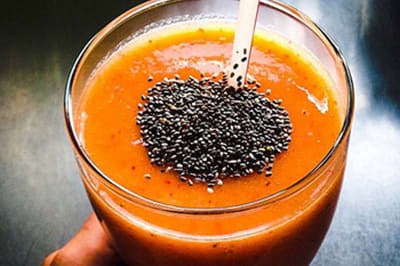AHMEDABAD: In an important order,
Gujarat high court has made it clear that once a court sentences a convict to
life imprisonment, it means the imprisonment is for the rest of the life of the convict.
The HC also clarified that granting
remission, or deciding to release such life-term convict after a certain period of time, normally 14 years here, is entirely the privilege of the state government and it is not in the court’s arena.
Justice
J B Pardiwala said so in response to a petition filed by a convict in the controversial
Bijal Joshi gang rape case of 2003-04, Sugam
Jaiswal, the petitioner, has been seeking remission, to be released from jail, as he has completed 14 years in prison.
After making it clear that life imprisonment is jail term “till the convict breathes his last” and judiciary has no role to play in such decisions, the HC further said that the grant of remission is a matter of policy and for the executive branch of the government to decide as to when, to what extent and in what manner, remission is to be granted. The government’s decision can be based on many factors including gravity of offence and type of prisoners.
The HC has also warned that remission may not be granted to prisoners while undergoing reformative imprisonment.
The HC has observed that courts should stay away from policy decision on such an issue, but maintained that remissions are granted under special circumstances and with the object of reforming the prisoners. Remission is neither a fundamental right nor a common law right of a prisoner, but a statutory right flowing from laws. Remission does not erase a person’s conviction, but merely gives an opportunity to reintegrate into the society.
The court has asked the government not to keep pending remission pleas for long, and directed to decide on Jaiswal’s application and communicate the decision to him in two months.
Let there be no mercy against offenders against women: HC
Justice JB Pardiwala has ruled that courts have no business in decision making on whether prisoners should be released prematurely, he observed that such benefits cannot be loosely given to all types of prisoners, particularly rapists.
The HC said that the government can make classification of prisoners on basis of gravity and types of offence and can deny remission to offenders against women. “An offence punishable under Section 376 of the IPC (rape) is not only an offence against a singular individual, but against the collective as it offends the dignity of a woman and creates a terror-trodden atmosphere in the society, because a rapist is a menace in the civilized society. Sometimes, liberal delineation with a convict of this nature decreases the faith in the system and a feeling of insensitivity prevails. Offences of dowry death and cruel treatment for demand of dowry have their own social impact, as the said offences corrode the essential social fabric and slowly denude it of stability affecting the age of old established institutions,” the order reads.
Govt decision of remission can be challenged
Gujarat HC has ruled that if the government reduces or remits imprisonment of a life convict, the kith and kin of the victim or an aggrieved person related to the criminal case can challenge the remission order before the high court. To question a victim’s kin’s locus standi is not proper, though releasing a prisoner prematurely does not affect anybody else’s right, the court said.
 Gujarat high court
Gujarat high court Gujarat high court
Gujarat high court



